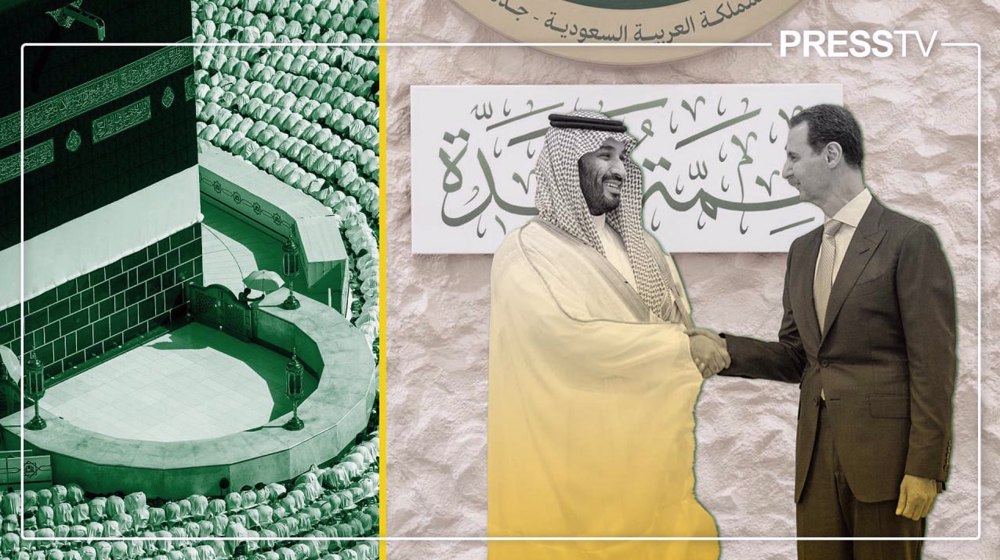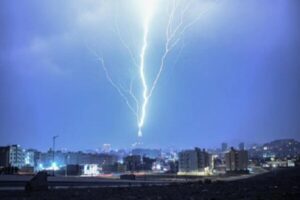By Omar Ahmed
Last month, in a significant yet underreported development, Saudi Arabia’s Ministry of Hajj decided to withdraw management of Syria’s Hajj and Umrah affairs from the foreign-backed opposition’s “Supreme Commission for Hajj,” and return it to the Syrian government.
The file was formally handed over to Syria’s Ministry of Awqaf (religious endowments) ahead of this year’s annual pilgrimage, which is expected to commence in mid-June.
According to media reports, this represents the official transfer of the Hajj file from the opposition after more than a decade, when Riyadh severed diplomatic ties with Damascus.
On 10 January, it was announced that Syria’s Minister of Awqaf Dr Muhammad Abdel Sattar Al-Sayyid met with the Saudi Minister of Hajj and Umrah Dr. Tawfiq bin Fawzan Al-Rabiah in Jeddah, where it was “agreed that this year’s Hajj and Umrah will take place from Damascus and under the supervision of the Syrian Ministry of Awqaf.”
It was around the same time last year that the Saudi authorities renewed the agreement with the West-backed Syrian opposition to handle the country’s Hajj affairs for the 2023 season.
However, by May of that year, Syria was re-admitted into the Arab League after 12 years of failed attempts to isolate and overthrow the government of President Bashar Al-Assad.
This was preceded by and followed by increased levels of normalization between Damascus and other Arab states, signifying a major political victory for the Syrian government and a failure for the Western war-mongering forces that were bent on destabilizing the Arab country.
As a consequence of this decision, the Hajj of 2023, for Syrian pilgrims, had to be suspended due to various diplomatic, logistical, and bureaucratic changes that were deemed necessary, although it had been initially declared that Damascus would resume organizing the Hajj.
Going forward, the return of the Hajj file to Damascus marks the latest yet crucial development in cementing the Syrian government’s legitimacy and international recognition.
Historically, the control of the Hajj had long been associated with power politics and notions of Islamic legitimacy to rule.
For example, historian Al-Yaqoubi once said: “The caliphate is only valid for those in whose hands are the Two Sacred Sanctuaries and for those who performed Hajj with the people.”
This was illustrated by the Makkan rebellion led by Abdallah ibn Zubayr against the Umayyads, or the Abbasid-Fatimid rivalry for control of the Two Holy Cities, and the competition between the Ottoman and British empires in vying for legitimacy in the Islamic world and influence over the semi-autonomous Sharifate in the Hijaz.
Today, as the self-anointed “Custodians of the Two Holy Mosques” the hosting of the annual pilgrimage to Islam’s most sacred site, in addition to the year-round lesser pilgrimage of Umrah is of immense religious and political soft power for the Saudi government.
Likewise, the signing of Hajj protocols with the state’s respective ministry of endowments also serves to bolster the legitimacy of the authority in question, particularly if there are rival powers and civil war.
For instance, in Yemen, a de-facto government led by Ansarallah-aligned authorities and based in the capital Sanaa operates without international recognition. This administration effectively oversees 80 percent of the country’s most densely populated areas.
In contrast, the UN-recognized Yemeni regime, supported by Saudi Arabia and many Western states, holds only a precarious grip on the interim capital in Aden, maintaining a shaky alliance with southern separatists backed by the UAE, the Southern Transitional Council (STC).
On 7 January, Dr. Al-Rabiah signed the Hajj agreement for 2024 with the Minister of Awqaf and Guidance in the Saudi-backed Yemeni government, Muhammad bin Aida Shabibah.
Significantly, this meeting saw Shabibah stress the importance of continuing to open Sanaa International Airport to Yemeni pilgrims, which had been under a blockade imposed by the Saudi-led coalition.
It was last year that a flight from Sanaa set off for the Hajj, carrying Ansarallah officials and Yemeni citizens from territory under the de-facto Yemeni government – the first time since 2014.
Nevertheless, Fouad Naji, the Deputy Minister of Guidance and Hajj Affairs, said the Saudi regime has “used the Hajj as a pressure tool throughout the years of aggression and blockade.”
Access to the Two Holy Cities has become a potent diplomatic tool, as shown by the announcement in December that Saudi Arabia had welcomed back Iranian pilgrims for Umrah after eight years.
Since 2016, when Riyadh severed diplomatic relations with Tehran, pilgrims from the Islamic Republic were restricted to performing the Hajj. The return of Iranians to Umrah comes months after both countries agreed to restore relations in a Chinese-brokered deal last March.
Returning to Syria, while political credentials serve as a source of strength for Damascus, there is a significant distance to cover in the quest to liberate the country from pockets of foreign-backed terrorists, Kurdish separatism, and the persistent challenges posed by the illegal US occupation.
The increasing resistance activities in Syria and neighboring countries, coupled with the expansion of Israel’s genocidal war on Gaza into a regional conflict, has intensified the pressure on the Syrian government.
This is compounded by the enduring occupation of the Golan Heights by Israel and the continuous violations of Syria’s sovereignty by the Zionist entity.
While the overdue return of the handling of Syrian Hajj affairs marks a positive development, Damascus will be preoccupied with critical geopolitical and security challenges in the months ahead, all of which have a bearing on the government’s legitimacy and the state’s territorial integrity.
Omar Ahmed has an MSc in International Security and Global Governance from Birkbeck, University of London. His interests include the politics, history and religion of the MENA region.
(The views expressed in this article do not necessarily reflect those of Press TV.)




